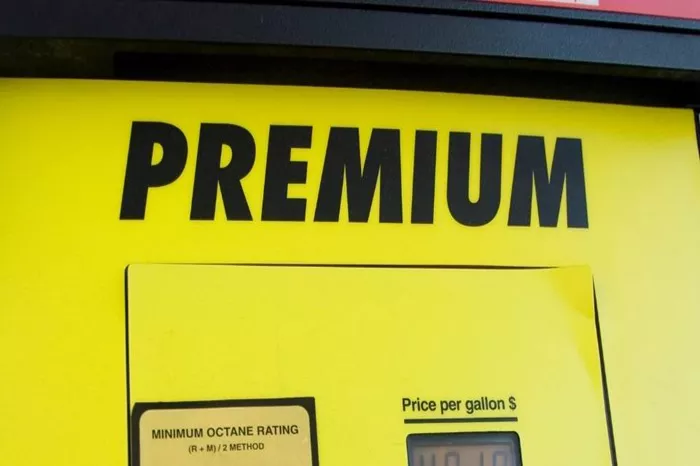Premium fuel is a term often heard at gas stations, but what exactly does it mean? Unlike regular gasoline, premium fuel is formulated with higher octane levels. This higher octane rating helps in reducing engine knocking and improving the performance of high-compression engines. Understanding premium fuel involves exploring its benefits, the types available, and when it is truly necessary to use it.
Understanding Octane Ratings
What is an Octane Rating?
The octane rating is a measure of a fuel’s ability to resist “knocking” during combustion, caused by the air/fuel mixture detonating prematurely in the engine. In simple terms, higher octane fuel can withstand greater compression before igniting.
Importance of High Octane
High octane ratings are crucial for high-performance engines, which are designed to operate at higher compression ratios. This helps in improving the engine’s efficiency and performance, reducing the risk of knocking and potential engine damage.
Types of Premium Fuel
Premium Unleaded Gasoline
Premium unleaded gasoline typically has an octane rating of 91 or higher. It is designed for engines that require higher compression and can benefit from the higher resistance to knocking.
Super Premium
Super premium fuel has an even higher octane rating, often 93 or above. This type of fuel is suitable for high-performance and luxury vehicles that demand the highest fuel quality for optimal performance.
Racing Fuel
Racing fuel, used primarily in motorsports, can have octane ratings exceeding 100. This fuel is formulated for engines that operate under extreme conditions and require maximum resistance to knocking.
Benefits of Using Premium Fuel
Enhanced Engine Performance
Premium fuel can significantly enhance engine performance, particularly in high-compression engines. The higher octane rating allows these engines to run more smoothly and efficiently.
Improved Fuel Efficiency
Using premium fuel can improve fuel efficiency. High-performance engines are designed to take advantage of the higher octane, leading to better mileage and lower overall fuel consumption.
Reduced Engine Knocking
One of the primary benefits of premium fuel is its ability to reduce engine knocking. This helps in maintaining engine health and longevity, preventing potential damage caused by premature combustion.
Cleaner Engine
Premium fuel often contains additional detergents and additives that help keep the engine clean. These additives can prevent the buildup of deposits in the engine, leading to smoother operation and reduced maintenance costs.
When to Use Premium Fuel
Manufacturer Recommendations
It’s essential to follow the manufacturer’s recommendations regarding fuel type. Many high-performance and luxury vehicles specify the use of premium fuel for optimal performance and efficiency.
High-Compression Engines
Vehicles with high-compression engines or turbocharged engines benefit the most from premium fuel. These engines are designed to operate at higher pressures and require fuel with a higher octane rating to prevent knocking.
High-Performance Driving
If you engage in high-performance driving or have a vehicle designed for such activities, premium fuel can provide the necessary performance and protection.
See also: What Octane Is Premium Fuel?
Misconceptions About Premium Fuel
Premium Fuel in Regular Engines
A common misconception is that using premium fuel in regular engines will improve performance. However, unless the engine is designed to benefit from higher octane fuel, there will be no significant improvement in performance or efficiency.
Cost vs. Benefit
The higher cost of premium fuel often leads to the belief that it always offers better performance. While it does provide benefits for specific engines, using it in engines not designed for premium fuel may not justify the additional expense.
Environmental Impact
Emissions
Premium fuel can result in lower emissions compared to regular gasoline, primarily due to its cleaner combustion properties. This can contribute to a reduction in the vehicle’s overall environmental footprint.
Fuel Economy
Improved fuel economy from using premium fuel can also reduce the frequency of refueling, leading to lower overall emissions from fuel production and distribution processes.
Premium Fuel Myths Debunked
Myth: Premium Fuel Always Improves Performance
As mentioned earlier, premium fuel only benefits engines designed to take advantage of its higher octane rating. In standard engines, the performance gains are negligible.
Myth: Premium Fuel is Cleaner
While premium fuel often contains more detergents and additives, this does not necessarily make it cleaner than regular fuel. The primary difference lies in its octane rating and performance benefits.
The Future of Premium Fuel
Advances in Fuel Technology
Ongoing advances in fuel technology are likely to enhance the benefits of premium fuel further. Innovations in additives and refining processes could lead to even cleaner and more efficient premium fuels.
Alternative Fuels
The rise of alternative fuels, such as electric and hydrogen, may impact the demand for premium fuel. However, high-performance internal combustion engines will likely continue to require premium fuel for optimal performance.
Conclusion
Premium fuel is designed to provide better performance and efficiency for high-compression and high-performance engines. While it offers significant benefits in terms of engine performance, fuel efficiency, and reduced knocking, its advantages are primarily limited to engines designed to utilize higher octane ratings. Understanding when and why to use premium fuel can help in making informed decisions at the pump, ensuring that your vehicle runs smoothly and efficiently.
Related topics:

